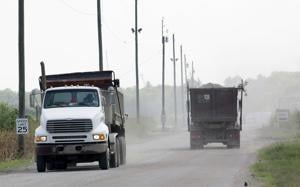
Editor’s note: This story, created by Katie Brigham at CNBC, is part of the SoJo Exchange from the Solutions Journalism Network, a nonprofit organization dedicated to rigorous reporting about responses to social problems. Louisiana Inspired features solutions journalism stories that provide tangible evidence that positive change is happening in other places and in our own communities — solutions that can be adopted around the world.
The average American produces about 4.4 pounds of waste per day. Roughly 1.5 pounds of that is composted or recycled, meaning the U.S. avoids sending just 34 percent of its waste to landfills, according to the EPA.
San Francisco provides a much different narrative. Thanks to bold public policy and educational initiatives, the city diverts about 80 percent of its waste from landfills, or more than 1.5 million tons every year.
Ultimately, San Francisco aims to reach zero waste. That means recycling, composting, reusing, and reducing consumption so that nothing goes to either the landfill or incineration.
The city hopes to achieve this goal by 2020. But even if it doesn’t, San Francisco is already way ahead of other cities. For example, New York only diverts about 21 percent of its waste and Chicago is at about 10 percent.
How has San Francisco done it?
In 2009, San Francisco made recycling and composting a requirement for all businesses and residences. It passed the nation’s first mandatory composting law, and while a few progressive cities have followed suite, most haven’t.
San Francisco also banned environmentally hazardous items like checkout bags and Styrofoam. Debbie Raphael, director of the San Francisco Department of the Environment, said she’s proud of how the city has used market incentives to drive behavior.
“If we can’t ban the materials sometimes we’ll put a charge on it,” she said. “We might ban a plastic bag and put a charge on using a single-use paper bag, because we’re sending signals to the producers and to the users, to the consumers, that there’s an easy, convenient, right way to do things.”

Leave a Reply